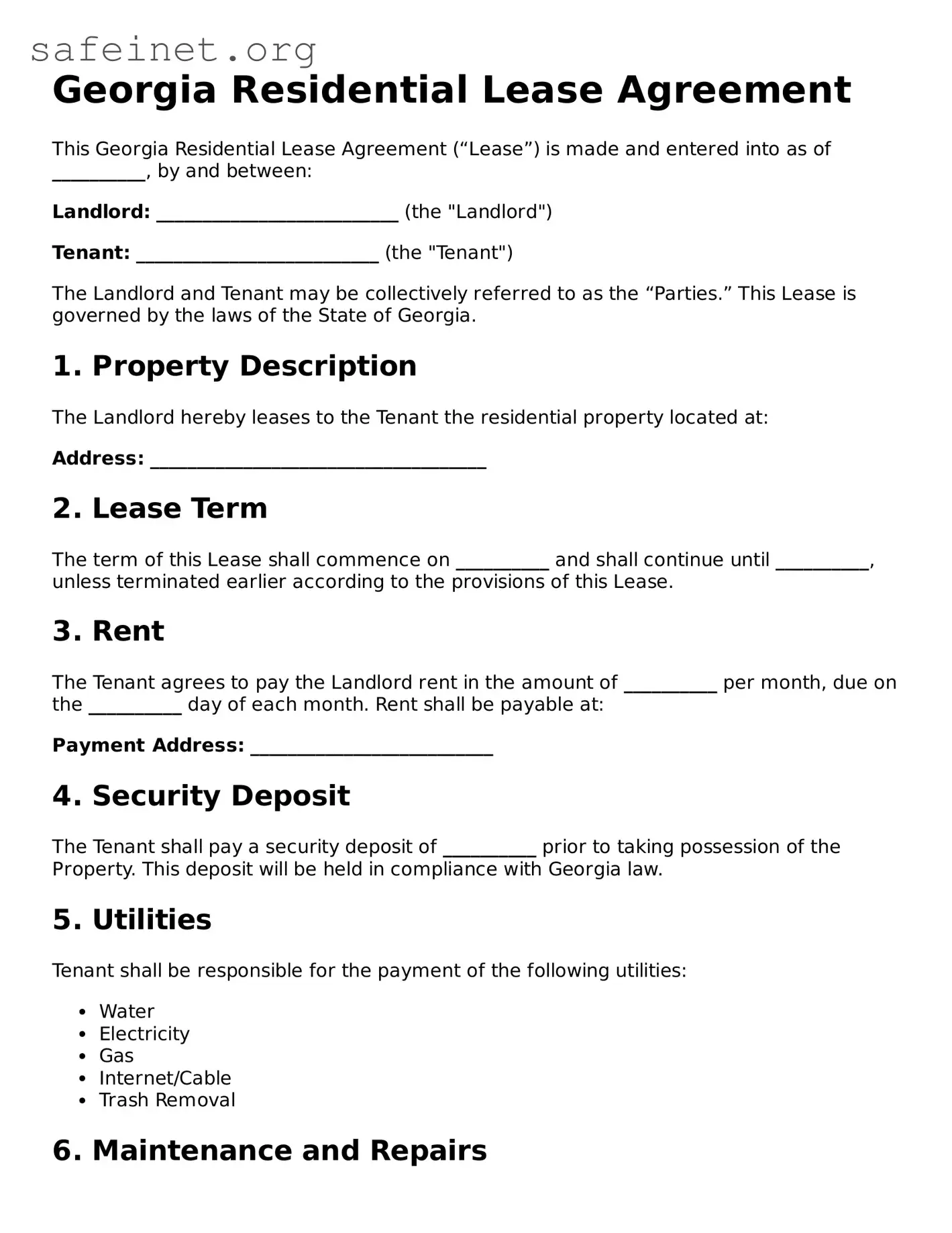Georgia Residential Lease Agreement
This Georgia Residential Lease Agreement (“Lease”) is made and entered into as of __________, by and between:
Landlord: __________________________ (the "Landlord")
Tenant: __________________________ (the "Tenant")
The Landlord and Tenant may be collectively referred to as the “Parties.” This Lease is governed by the laws of the State of Georgia.
1. Property Description
The Landlord hereby leases to the Tenant the residential property located at:
Address: ____________________________________
2. Lease Term
The term of this Lease shall commence on __________ and shall continue until __________, unless terminated earlier according to the provisions of this Lease.
3. Rent
The Tenant agrees to pay the Landlord rent in the amount of __________ per month, due on the __________ day of each month. Rent shall be payable at:
Payment Address: __________________________
4. Security Deposit
The Tenant shall pay a security deposit of __________ prior to taking possession of the Property. This deposit will be held in compliance with Georgia law.
5. Utilities
Tenant shall be responsible for the payment of the following utilities:
- Water
- Electricity
- Gas
- Internet/Cable
- Trash Removal
6. Maintenance and Repairs
The Tenant agrees to maintain the Property in a clean and sanitary condition. Any repairs required, not due to Tenant’s misuse, should be reported to the Landlord in a timely manner.
7. Termination
To terminate this Lease, written notice must be provided by either Party at least __________ days prior to the intended termination date.
8. Governing Law
This Lease shall be governed by and construed in accordance with the laws of the State of Georgia.
9. Additional Provisions
Any additional terms or modifications to this Lease shall be made in writing and signed by both Parties.
IN WITNESS WHEREOF, the Parties have executed this Lease on the day and year first above written.
Landlord Signature: ____________________________ Date: ___________
Tenant Signature: _____________________________ Date: ___________
